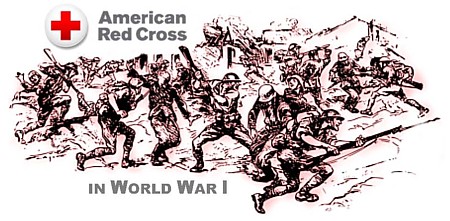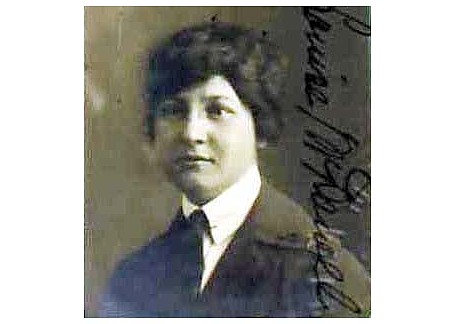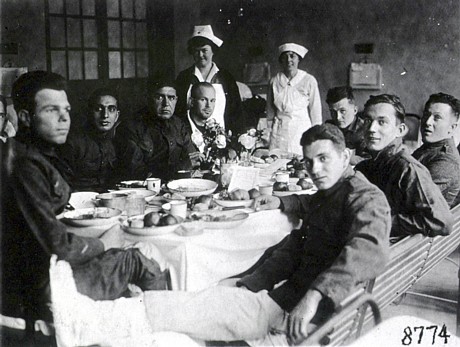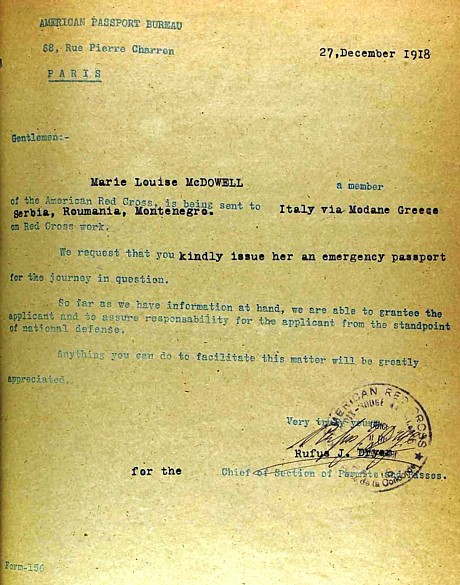From 1914 to 1918, Europe endured the horrors of The Great War, now known as World War I. In recognition of the 100th anniversary of the conflict, “From the Archives” will feature a series of articles on Red Cross involvement in the war.

Among the many nurses who volunteered to go to Europe to tend to the wounded soldiers was Marie Louise McDowell. McDowell, 34 years old and a resident of Middletown, Del., traveled to France on the SS Chicago in June 1917 as part of American Ambulance, Neuilly-sur-Seine.

She was with American Ambulance hospital that later became American Red Cross Military Hospital No. 1 in Paris, attending mostly French soldiers. McDowell shows her frustration when she writes of not being able to serve in the American Ambulance Hospital in Paris where many Americans were being treated.
“I can scarcely wait to get with the Americans, they need us so badly and its (sic) dreadful to think of our boys not getting all the attention they need.” So she and a colleague put in for a transfer.
A year later, after the United States joined the war, in a letter to her family she talks of now treating American wounded. The following excerpts from her June 17, 1918 letter give insight into the conditions at the time.
McDowell wrote the letter on a Sunday, a day with special perks, when she had “a clean napkin. . .and for lunch. . .either radishes or sardines. . . .”
When McDowell visited the Red Cross tent hospital in Auteuil, France, one man told her the Marines “charged without any barrage or artillery and they stopped the [German soldiers] but at a very great loss.” He said that the Marines “had nothing to eat for days. . .it was open war fair (sic) entirely. . . no trenches.”

McDowell was also concerned about giving the French a good impression of America. Since most American movies shown there at that time were Westerns, many of the French would ask her if she was “from New York. . .they think it is the only really civilized part” of America.
Living costs were at the nurses’ own expense. McDowell writes of having to pay to have her new Red Cross suit altered, but that having a “‘carnet rouge’ (or ID card) from the Red Cross gives us military rates on the railroad fare, so it is quite a help.”
The Armistice was signed on November 11, 1918. McDowell chose to stay overseas, and the Red Cross assigned her to the Balkan Commission treating the wounded and ill in northern Serbia.
Shown below is McDowell’s passport application to Serbia. (Courtesy Middletown Historical Society)
Special thanks to George Content and the Middletown Historical Society, Middletown, Del., for sharing this material with From the Archives.
Find more information on the American Red Cross in World War I on redcross.org. Follow Nicholas Lemesh on Twitter, @NickLemesh.

